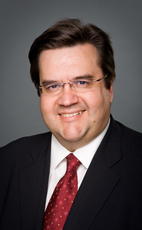Mr. Speaker, there are two sorts of laws. First there are those the government proposes because it wants them, like those providing work, strengthening the social safety net or improving the justice system. Then there are those that the government is obliged to adopt. I think it is obvious to all the members at least on our side that this bill belongs in the second category.
I rise to speak today, because I think it is time to set the record straight. We have heard all sorts of mud slinging from the members of the Bloc. They tried to get at my colleague and friend the member for Anjou—Rivière-des-Prairies, who, by the way, beat a Bloc Quebecois member by over 10,000 votes. So I think that people are intelligent in the riding of Anjou—Rivière-des-Prairies. If they elected him with a 10,000 vote majority, and if they elected me with a 9,000 vote majority, that means something. It also means they elected someone from Anjou—Rivière-des-Prairies with labour experience. This is another plus for the Liberal government.
One thing is certain. I have nothing to learn from the likes of the Bloc Quebecois, these PQ champions of special legislation, of going back on a signature. Remember 1982. If the member for Frontenac—Mégantic were a teacher, he would remember that the PQ government introduced a special bill, Bill 111, which repudiated the signing of collective agreements and cut his salary by 20%. That is a gang that works for workers. Give me a break. If they say our minister takes himself for the President of Canada Post, I do not know whether they look like the union president, but there are certainly problems. This special legislation was one hundred times worse than Bill C-24.
And to top it all, who was the chief negotiator at the time of Bill 111? None other than Lucien Bouchard. That must hurt. So I have nothing to learn from them.
Once again, when we do not agree with the Bloc Quebecois, he begins howling that we are not defending Quebec's interests, believe it or die. We are losing $54 million a day. Across Canada, including Quebec, charitable organizations have been losing more than $10 million a day. The Salvation Army, Jeunesse au soleil, these people who collect food and money to help the less fortunate could not get this money because of the postal strike.
We are not pleased with this strike, nor are we pleased to have to pass this special legislation. This is clearly a responsible government, which has let both parties negotiate during eight months with the help of our best mediators, in the person of Marc Gravel and Warren Edmondson—no one can say that Edmondson and Gravel are not good mediators, they are the best—but the parties did not come to an agreement. If I had to choose between our mediators and the Bouchard guys, I am sorry, but I think I would rather trust ours.
Before I go any further, I forgot to mention that I will be sharing my time with my hon. colleague from Waterloo—Wellington. You did get that, but I wanted to make sure.
We are losing $54 million per day. Dozens of jobs are lost.

